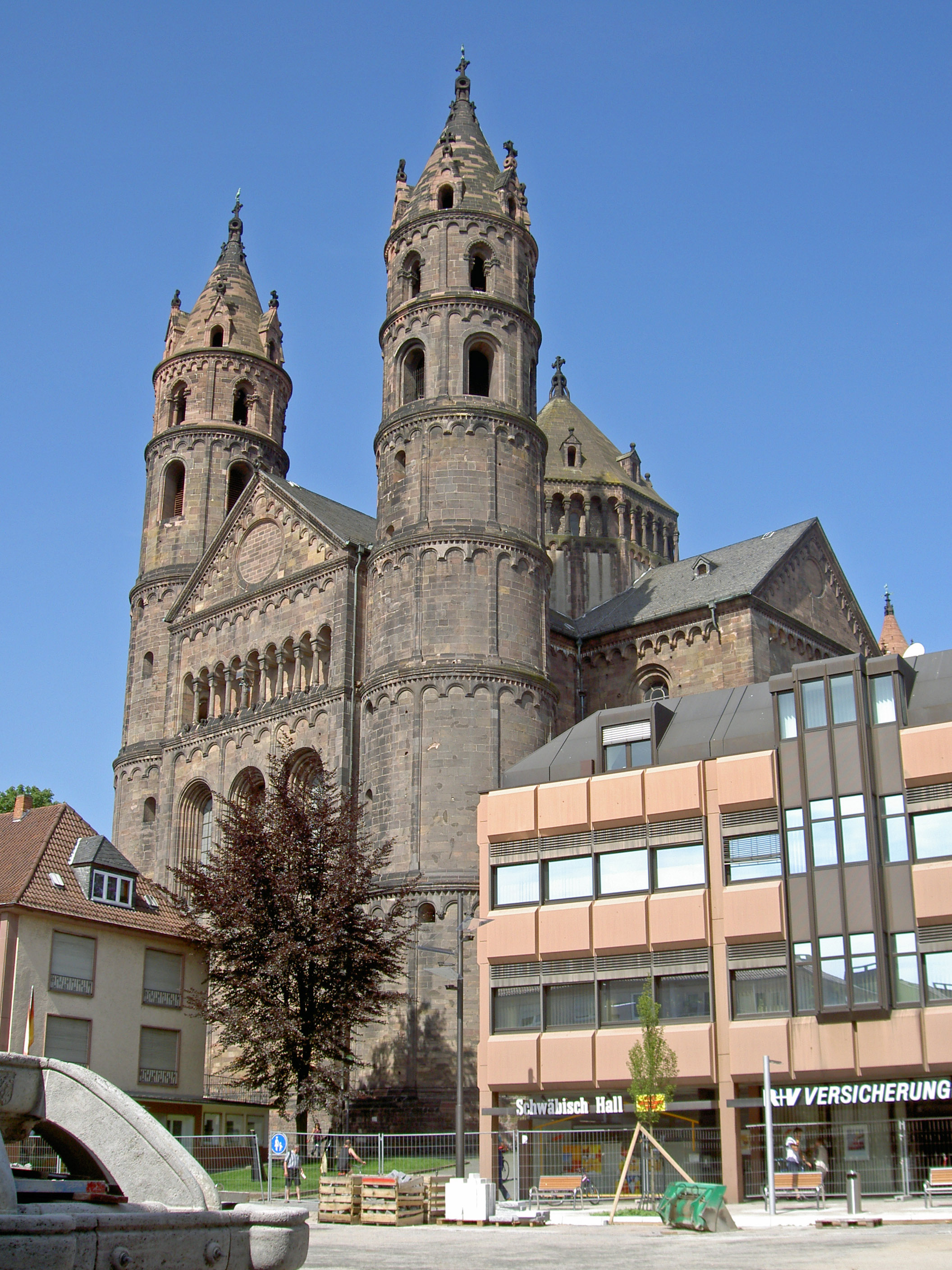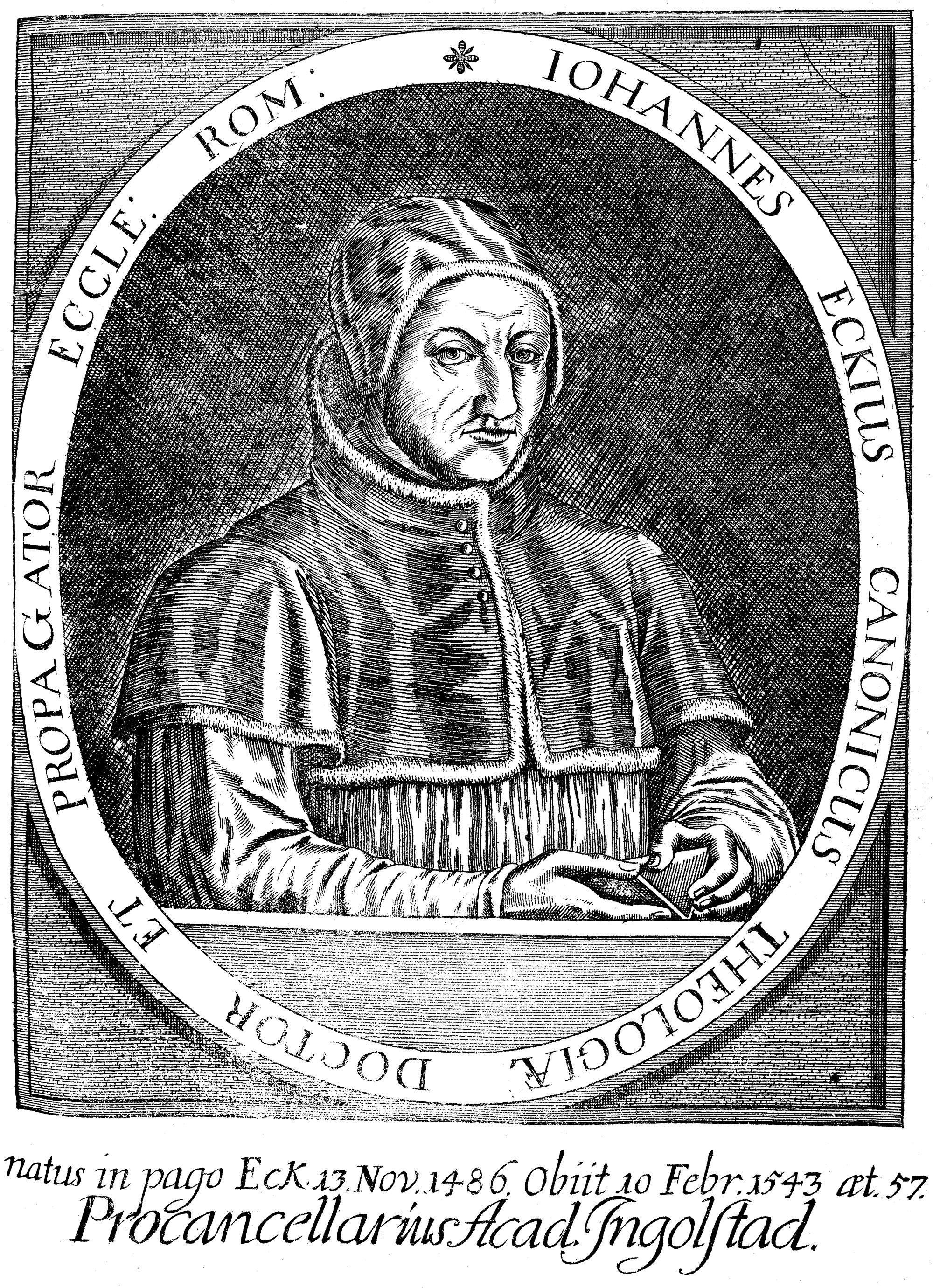|
Colloquy Of Worms (1540–1541)
The Colloquy of Worms or Conference of Worms (1540–1541) was a meeting held in Worms, Germany with the objective of settling differences between Protestant Reformers and Catholics in Germany. It followed the unsuccessful Colloquy of Hagenau in 1540. Johann Eck represented the Catholics and Philip Melanchthon represented the Protestants. The Colloquy reached an agreement on the doctrine of original sin Original sin () in Christian theology refers to the condition of sinfulness that all humans share, which is inherited from Adam and Eve due to the Fall of man, Fall, involving the loss of original righteousness and the distortion of the Image ..., but it decided to end discussions due to the calling of the Conference of Ratisbon. References Reformation in Germany {{germany-hist-stub ... [...More Info...] [...Related Items...] OR: [Wikipedia] [Google] [Baidu] |
Worms, Germany
Worms (; ) is a city in Rhineland-Palatinate, Germany, situated on the Upper Rhine about south-southwest of Frankfurt, Frankfurt am Main. It had about 84,646 inhabitants . A pre-Roman foundation, Worms is one of the oldest cities in northern Europe. It was the capital of the Kingdom of the Burgundians in the early fifth century, hence is the scene of the medieval legends referring to this period, notably the first part of the ''Nibelungenlied''. Worms has been a Roman Catholic Prince-Bishopric of Worms, bishopric since at least 614, and was an important Count palatine, palatinate of Charlemagne. Worms Cathedral is one of the imperial cathedrals and among the finest examples of Romanesque architecture in Germany. Worms prospered in the High Middle Ages as an imperial free city. Among more than a hundred imperial Diet (assembly), diets held at Worms, the Diet of 1521 (commonly known as Diet of Worms, ''the'' Diet of Worms) ended with the Edict of Worms, in which Martin Luther wa ... [...More Info...] [...Related Items...] OR: [Wikipedia] [Google] [Baidu] |
Catholics
The Catholic Church (), also known as the Roman Catholic Church, is the largest Christian church, with 1.27 to 1.41 billion baptized Catholics worldwide as of 2025. It is among the world's oldest and largest international institutions and has played a prominent role in the history and development of Western civilization. O'Collins, p. v (preface). The church consists of 24 ''sui iuris'' (autonomous) churches, including the Latin Church and 23 Eastern Catholic Churches, which comprise almost 3,500 dioceses and eparchies around the world, each overseen by one or more bishops. The pope, who is the bishop of Rome, is the chief pastor of the church. The core beliefs of Catholicism are found in the Nicene Creed. The Catholic Church teaches that it is the one, holy, catholic and apostolic church founded by Jesus Christ in his Great Commission, that its bishops are the successors of Christ's apostles, and that the pope is the successor of Saint Peter, upon whom pr ... [...More Info...] [...Related Items...] OR: [Wikipedia] [Google] [Baidu] |
Colloquy Of Hagenau
Colloquy may refer to: * Colloquy (religious), a meeting to settle differences of doctrine or dogma * Colloquy (company), a loyalty marketing company based in Milford, Ohio * Colloquy (law), a legal term * Colloquy (IRC client) Colloquy is an open-source IRC, SILC, ICB and XMPP client for Mac OS X. Colloquy uses its own core, known as Chat Core, although in the past it used Irssi as its IRC protocol engine. One of the primary goals behind Colloquy was to create an IRC, ..., an IRC client for Mac OS X and iOS See also * '' Northwestern University Law Review Colloquy'', the online companion of the ''Northwestern University Law Review'' {{Disambiguation ... [...More Info...] [...Related Items...] OR: [Wikipedia] [Google] [Baidu] |
Johann Eck
Johann Maier von Eck (13 November 1486 – 13 February 1543), often anglicized as John Eck, was a German Catholic theologian, scholastic, prelate, and opponent of Martin Luther. Life Johann Eck was born Johann Maier at Eck (later Egg, near Memmingen, Swabia) and derived his additional surname from his birthplace, which he himself, after 1523, always modified into Eckius or Eccius, i.e. "of Eck". His father, Michael Maier, was a peasant and bailiff, or ''Amtmann'', of the village. The boy's education was undertaken by his uncle, Martin Maier, parish priest at Rottenburg on the river Neckar. At the age of 12 he entered the University of Heidelberg, which he left in the following year for Tübingen. After taking his master's degree in 1501, he began the study of theology under Johann Jakob Lempp, and studied the elements of Hebrew and political economy with . Johann Eck left Tübingen in 1501 on account of the plague and after a year at Cologne finally settled at Freiburg Uni ... [...More Info...] [...Related Items...] OR: [Wikipedia] [Google] [Baidu] |
Philip Melanchthon
Philip Melanchthon (born Philipp Schwartzerdt; 16 February 1497 – 19 April 1560) was a German Lutheran reformer, collaborator with Martin Luther, the first systematic theologian of the Protestant Reformation, an intellectual leader of the Lutheran Reformation, and influential designer of educational systems. He stands next to Luther and John Calvin as a reformer, theologian, and shaper of Protestantism. Early life and education He was born Philipp Schwartzerdt on 16 February 1497 at Bretten, where his father Georg Schwarzerdt (1459–1508) was armorer to Philip, Count Palatine of the Rhine. His mother was Barbara Reuter (1476/77-1529). Bretten was burned in 1689 by French troops during the War of the Palatinate Succession. The town's Melanchthonhaus was built on the site of his place of birth in 1897. In 1507 he was sent to the Latin school at Pforzheim, where the rector, Georg Simler of Wimpfen, introduced him to the Latin and Greek poets and to Aristotle. He was in ... [...More Info...] [...Related Items...] OR: [Wikipedia] [Google] [Baidu] |
Original Sin
Original sin () in Christian theology refers to the condition of sinfulness that all humans share, which is inherited from Adam and Eve due to the Fall of man, Fall, involving the loss of original righteousness and the distortion of the Image of God. The biblical basis for the belief is generally found in Fall of man#Genesis 3, Genesis 3 (the story of the expulsion of Adam and Eve from the Garden of Eden), and in texts such as ("I was brought forth in iniquity, and in sin did my mother conceive me") and ("Therefore, just as sin entered the world through one man, and death through sin, and in this way death came to all people, because all sinned"). The specific doctrine of original sin was developed in the 2nd century struggle against Gnosticism by Irenaeus of Lyons, and was shaped significantly by Augustine of Hippo (354–430 AD), who was the first author to use the phrase "original sin". Influenced by Augustine, the Councils of Carthage (411–418 AD) and Council of Orange ... [...More Info...] [...Related Items...] OR: [Wikipedia] [Google] [Baidu] |
Conference Of Ratisbon
The Colloquy of Regensburg, historically called the Colloquy of Ratisbon, was a conference held at Regensburg (Ratisbon) in Bavaria in 1541, during the Protestant Reformation, which marks the culmination of attempts to restore religious unity in the Holy Roman Empire by means of theological debate between the Protestants and the Catholics. Background Delegates from the various factions had met at Haguenau in 1540 and at Worms in January 1541 but the latter session of the Imperial Diet was adjourned by the Emperor Charles V as the Diet was preparing to meet at Regensburg. The subject for debate was to be the Augsburg Confession, the primary doctrinal statement of the Lutheran movement, and the Apology of the Augsburg Confession, a defense of the Confession written by Philipp Melanchthon. On 15 December 1540 a secret conference took place between Johann Gropper, canon of Cologne, and Gerhard Veltwick, the Imperial secretary, on the one side and Butzer and Capito, the delegates of P ... [...More Info...] [...Related Items...] OR: [Wikipedia] [Google] [Baidu] |



